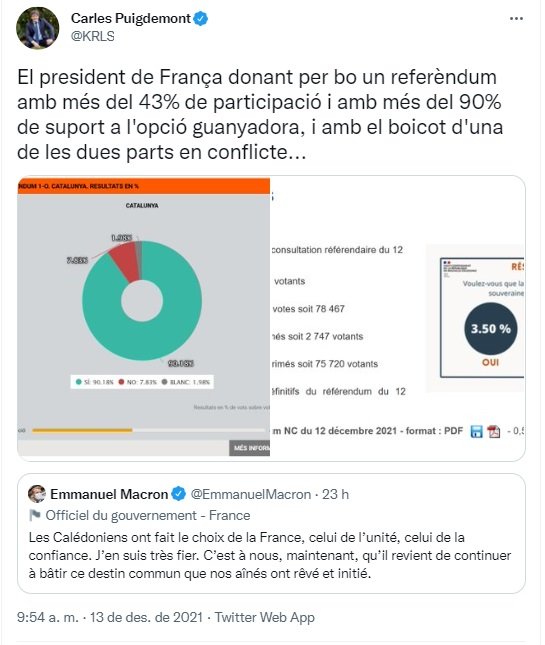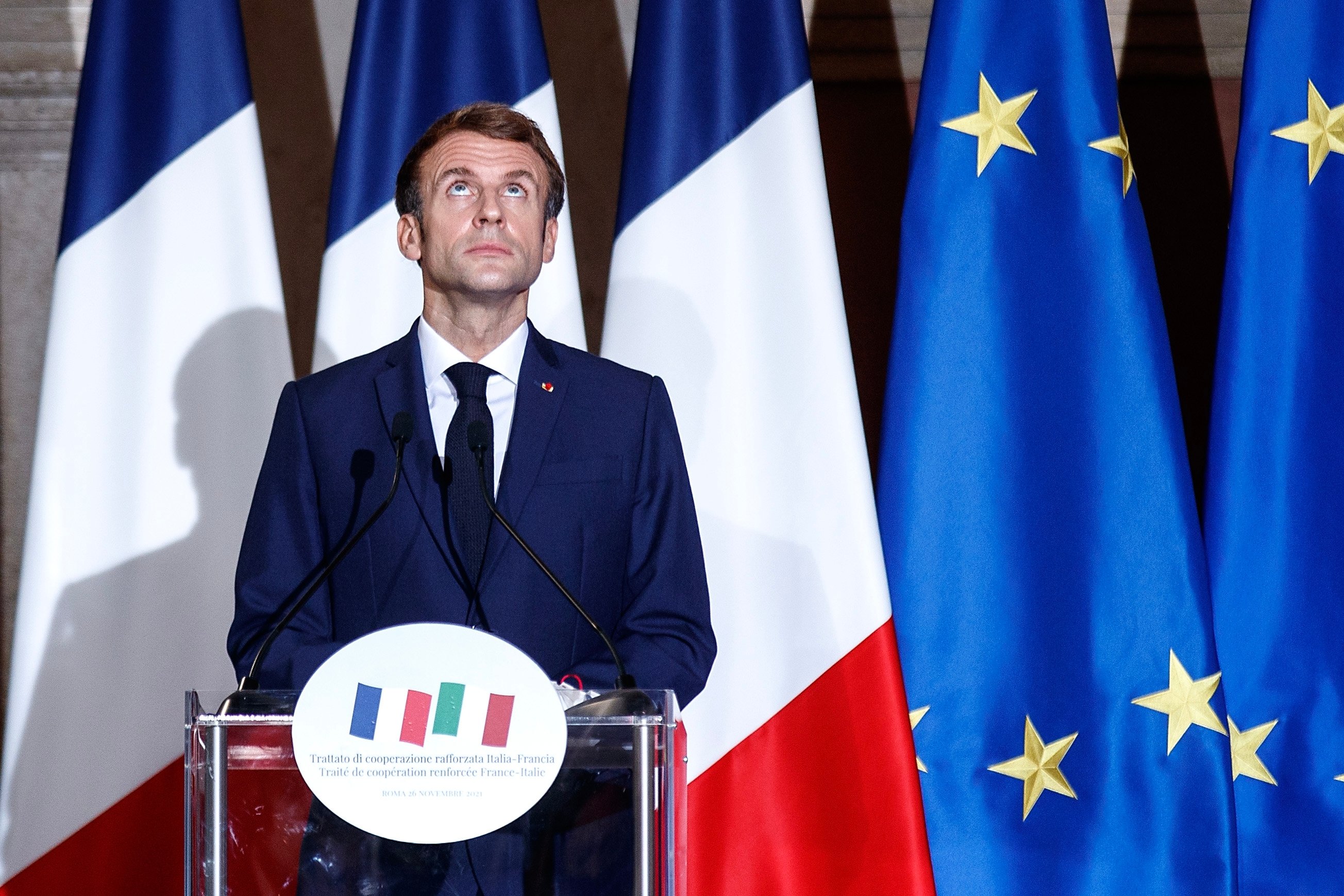New Caledonia's third independence referendum has concluded with a victory for the 'no' side over the pro-independence 'yes'. This is a result that French president Emmanuel Macron has not only acknowledged, but also celebrated in a tweet. Exiled Catalan president Carles Puigdemont responded to Macron's message by pointing out the peculiarities of the referendum in the Pacific Island territory: "A turnout of a little over 43% and with more than 90% support for the winning option, and boycotted by one of the two parties in conflict ...". A series of statistics that did not prevent the French state from giving the vote the thumbs up of acceptability. But why did Carles Puigdemont allude to these numbers especially?
The turnout figures, the wide margin of victory of one of the options and the boycott of the vote by one of the two sides were exactly what happened in Catalonia's independence referendum of October 1st, 2017. President Puigdemont attaches two photographs to his tweet showing the results of the two referendums. The results from Catalonia in 2017 show a 43.03% turnout and the winning option, the 'yes' to independence, obtained 90.18% of the votes. On the other hand, in New Caledonia the turnout was 43.87% and the 'no' option received 96.50% of the vote.

The difference between one independence referendum and the other lies in the legitimacy attributed to them by the powers of the state in which they were held. For France, the results are acceptable; on the other hand, the Spanish state has delegitimized the result of October 1st on many occasions. In fact, violent repression of the referendum by Spanish police that day and the confiscation of ballot boxes and voting papers contributed to the reduction of the total turnout, and was part of a deliberate strategy by the Mariano Rajoy to discredit the result.
Pro-independence side rejects result
Sunday's referendum was, in theory, the final decision on New Caledonia's independence, under the terms of the 1998 Noumea Agreement. At that time it was planned that a maximum of three votes in succession would be held.
The first consultation, in 2018, resulted in a victory of 56.7% in favour of remaining as part of French territory. The second referendum, which was held two years later, however, saw the 'no' vote reduced and support fell to 53.3% of the vote. The pro-independence forces, centred in the indigenous Kanak people living in the rural parts of the island group, had gained ground from the 'no' voters, mainly of European origin.
On Sunday, the third referendum was held, but the independence movement boycotted it. Since October this year, they had called for the vote to be delayed, after a severe Covid outbreak caused 270 deaths within a few weeks. France, however, refused to accept the proposal and decided to hold the referendum without the approval of much of the citizenry. Nevertheless, the boycott of the vote by half the population was comprehensive.
For this reason, the New Caledonian independence movement on Monday rejected the legitimacy and validity of the referendum held in this island territory in the South Pacific.
Main image: French president Emanuel Macron / Europa Press

